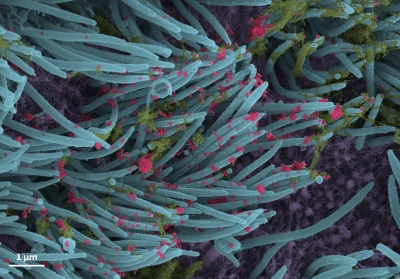Food Inflation
The Indian economy faces a multifaceted challenge as food prices continue to rise, exerting significant pressure on households and policymakers alike.
The INSACOG has sequenced 58,240 SARS-CoV-2 genomes, the Parliament was informed.

Photo: IANS
Genome sequencing capacity has not been reduced in the country, and since its inception, the INSACOG has sequenced 58,240 SARS-CoV-2 genomes, the Parliament was informed.
Out of these, 46,124 samples have been analyzed, assigned pangolin lineage classification, and submitted to the National Centre for Disease Control (NCDC) for public health correlation, the Lok Sabha was informed through a written reply.
Advertisement
The capacity has been enhanced by expanding the INSACOG network from 10 laboratories to 28 laboratories, and efforts in terms of expansion of INSACOG by onboarding more laboratories have been undertaken.
Advertisement
The Indian SARS-CoV-2 Genomics Consortium, or the INSACOG, is the consortium of 28 genome sequencing laboratories of the Department of Biotechnology, the Department of Science and Technology, the Health and Family Welfare Ministry, the Council of Scientific and Industrial Research (CSIR), the Education Ministry, the Indian Council of Medical Research (ICMR) and state governments. It was established as an inter-ministerial initiative with an overall objective to expand whole-genome sequencing of the SARS-CoV-2 virus across the nation and aiding understanding of how the virus spreads and evolves.
The specific objectives of INSACOG are to ascertain the current status of a new variant of SARS-CoV-2 in the country; establish sentinel surveillance for early detection of genomic variants with public health implication; determine the genomic variants in the unusual events/trends (super-spreader events, high mortality/morbidity trend areas etc.), a statement said.
Standard Operating Procedures (SOPs) have been developed to accelerate the pace of genome sequencing in terms of the number of samples to be sequenced as well as the time for reporting and undertake to sequence of samples from hospitals and for sewerage surveillance as a public health tool to understand Covid-19 spread in a community. These initiatives provide significant scientific information to assist and guide the public health decisions for Covid-19 management in the country, it added.
Advertisement